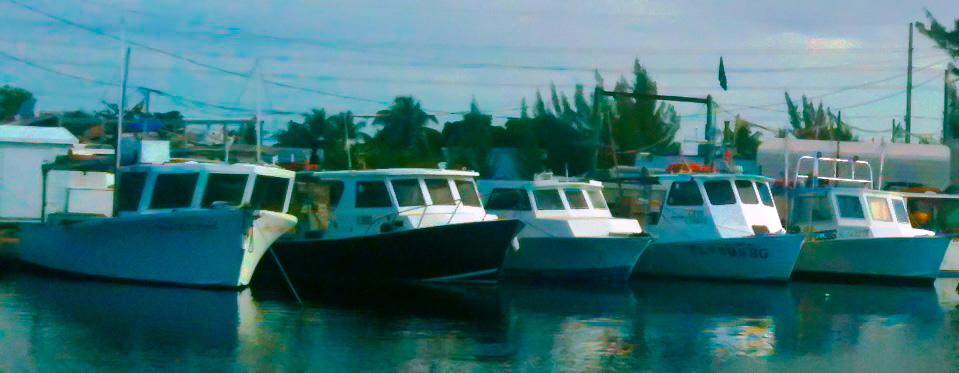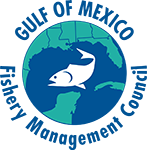
Historical Captain Permits Conversion into Standard Federal Charter/Headboat Permits
This amendment provides an opportunity to replace reef fish and coastal migratory pelagic historical captain endorsements held by for-hire operators in the Gulf with standard Gulf Charter/Headboat permits.
This final rule is effective July 31, 2023
Modification of For-Hire Multi-day Trip Possession Limits
This Framework Amendment modifies the possession limit on-board vessels with Federal Reef Fish or Coastal Migratory Pelagic Charter/Headboat Permits. Anglers fishing from such vessels may possess two-daily bag limits on trips greater than 30-hours and may retain their second daily bag limit at any time during the trip. All other requirements to retain the recreational possession limit are unchanged. The for-hire vessel must have two licensed operators aboard, and each passenger must have in their possession a receipt issued to them on behalf of the vessel that verifies the length of the trip. The receipt must specify the date and time of departure, and the entire trip must occur on days when the harvest and possession of the applicable reef fish species are allowed.
This final rule also revises language related to reporting under the Gulf Council’s individual fishing quota (IFQ) programs during catastrophic conditions by removing the references to sequentially coded paper forms in both 50 CFR 622.21(a)(3)(iii) and 622.22(a)(3)(iii). If an IFQ dealer requests paper forms for use during catastrophic conditions, NMFS will provide unnumbered forms.
This final rule is effective March 26, 2021.
Modifications to Charter Vessel and Headboat Reporting Requirements
*A court ruling set aside this regulation on February 23, 2023.
This amendment requires the owner or operator of a vessel with a federal charter/headboat permit for Gulf of Mexico Reef Fish or Coastal Migratory Pelagic Species to:
- Submit an electronic fishing report via National Marine Fisheries Service (NMFS)-approved hardware and software for each fishing trip before offloading fish from that fishing trip or within 30 minutes after the end of each trip if no fish were landed.
- Notify NMFS (hail-out/ submit a trip declaration) before departing for any trip to identify if the trip will be for-hire or another trip type. If the vessel will be operating as a for-hire vessel, the other details of the trip will need to be provided.
- Use NMFS-approved hardware and software with global positioning system (GPS) location capabilities that, at a minimum, archives vessel position data during a trip for transmission to NMFS.
This final rule is effective January 5, 2021.
Replacement of Historical Captain Permits with Standard Federal Charter/Headboat Permits
This amendment allows people with historical captain permits that were valid as of October 25, 2018 the option to replace them with standard federal charter/headboat permits. Each newly issued charter/headboat permit will have the same permit capacity as the historical captain permit it replaces.
This final rule is effective May 21, 2020.
Modifications to Federally Permitted Seafood Dealer Reporting Requirements
This amendment consolidates the existing South Atlantic and Gulf of Mexico federal dealer permits and requires permits for dealers who currently are not required to have one. The amendment additionally increases the frequency of federal dealer reporting from monthly to weekly and establishes requirements to maintain a federal dealer permit.
This final rule is effective August 7, 2014.
Annual Catch Limits and Accountability Measures
This amendment addresses a requirement in the Reauthorized Magnuson-Stevens Act of 2006 to establish Annual Catch Limits and Accountability Measures for federally managed species. The amendment has been approved by the Secretary of Commerce.
This rule is effective January 30, 2012 except for the amendments to § 622.32(b)(2)(iii) and § 622.39(b)(1)(ii). NOAA will publish a document announcing the effective date of the amendments to § 622.32(b)(2)(iii) and § 622.39(b)(1)(ii) in the Federal Register.
Essential Fish Habitat (EFH) Generic Amendment 3
This amendment addressed EFH requirements, Habitat Areas of Particular Concern (HAPC), and adverse effects of fishing in the fisheries for shrimp, red drum, reef fish, stone crab, coral, and coral reefs in the Gulf of Mexico (Gulf), as well as spiny lobster and the CMP resources of the Gulf and Atlantic Ocean. Management measures include; prohibiting bottom anchoring to protect coral reefs in the East and West Flower Garden Banks, McGrail Bank, Pulley Ridge, and the North and South Tortugas Ecological Reserves, as well as Stetson Bank HAPCs prohibiting longlines, buoy gear, and all traps/pots to protect coral reefs in those same HAPCs; and requiring a weak link in the tickler chain of bottom trawls on all habitats throughout the Gulf exclusive economic zone (EEZ).
This final rule is effective January 23, 2006, except for § 622.34(q), which is effective January 24, 2006.
Essential Fish Habitat Generic Amendment 2 (Tortugas Marine Reserves)
This amendment was to all 7 fishery management plans (FMP) and created two marine reserves where all fishing is prohibited. One 60 sq. mile reserve was created on a spawning aggregation site for mutton snapper in the Gulf of Mexico Fishery Management Council’s (GMFMC) jurisdiction. The other (125 sq. miles) was created in the jurisdictions of the National Park Service (NPS), Florida Keys National Marine Sanctuary (FKNMS), GMFMC, and State of Florida. These reserves will provide for research to assess the value of no-use reserves. The amendment number for each FMP is as follows: Mackerel (13), Coral (4), Red Drum (4), Reef Fish (19), Shrimp (12), Spiny Lobster (7), and Stone Crab (8).
This final rule is effective August 19, 2002.
Sustainable Fisheries Act (SFA)
This amendment was to all 7 fishery management plans (FMP) and addresses the new provisions implemented by the SFA that pertain to preventing overfishing and rebuilding of overfished stocks. It also provides demographic and economic information on fishing communities. It proposed scientific definitions for each stock managed by the Council for: maximum sustainable yield (MSY), optimum yield (OY), Maximum Fishing Mortality Thresholds (MFMT), and for Minimum Stock Size Thresholds (MSST). It proposed rebuilding plans for overfished stocks for which such data were available. It assessed bycatch and proposed reporting requirements for bycatch.
This final rule is effective June 19, 2000.
